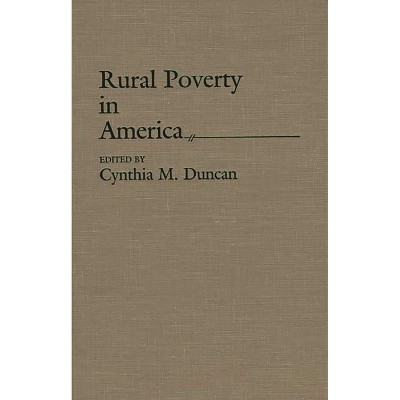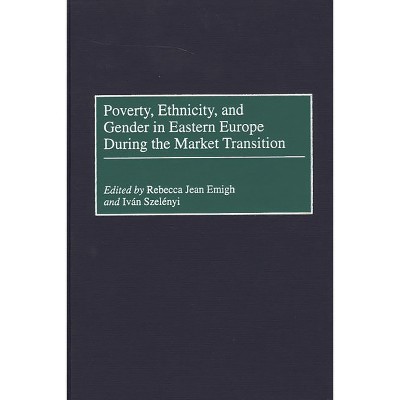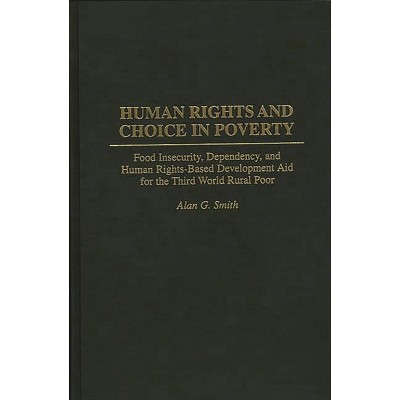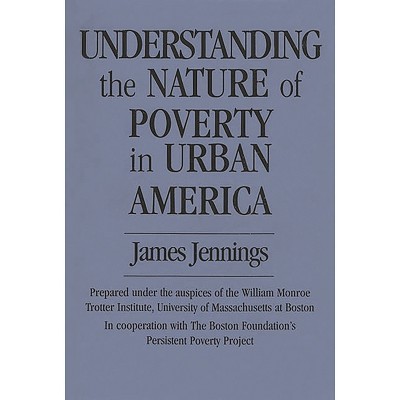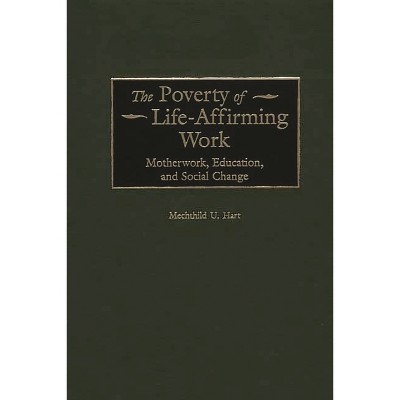Sponsored

The Burma Road to Poverty - (History; 20) by Mya Maung (Hardcover)
In Stock
Sponsored
About this item
Highlights
- Although political upheavals and mass killings in the Socialist Republic of Burma (Myanmar) have received a great deal of international attention, scholars and journalists until now have failed to identify the unique underlying factors that produced this situation and helped to maintain military dictatorship under Ne Win's successors.
- About the Author: MYA MAUNG is Professor of Finance in the Boston College School of Management.
- 362 Pages
- Social Science, Anthropology
- Series Name: History; 20
Description
About the Book
Although political upheavals and mass killings in the Socialist Republic of Burma (Myanmar) have received a great deal of international attention, scholars and journalists until now have failed to identify the unique underlying factors that produced this situation and helped to maintain military dictatorship under Ne Win's successors. Mya Maung looks into the deeper sources of Burmese behavior, focusing on the ancient tradition of sacred despotic rule, the undermining of social and cultural life during the British colonial period, and the impact of conflicting cultural realities on a Communist military elite whose attempts to reinstate absolute authority compounded their gross mismanagement of economic development.
Maung presents an overview of the contradictions and biases expressed by writers--both foreign and Burmese--who have attempted to understand the Burmese and their country's recent history. He next describes a traditional society in which authoritarian rule existed side by side with a marked degree of social freedom and egalitarianism. Maung discusses the far-reaching impact of colonialism, the transition to independence, the Socialist military takeover, and the progressive repression and economic failures that led ultimately to economic collapse. Maung concludes with an examination of Burma's potential for utilizing its resources effectively and developing a stable economy in the transition to capitalism. Based on field research, hundreds of interviews, and Maung's firsthand knowledge of Burmese culture, this analysis contributes a balanced perspective and new information crucial to our understanding of a society that has been largely closed to outsiders for more than two decades.
Book Synopsis
Although political upheavals and mass killings in the Socialist Republic of Burma (Myanmar) have received a great deal of international attention, scholars and journalists until now have failed to identify the unique underlying factors that produced this situation and helped to maintain military dictatorship under Ne Win's successors. Mya Maung looks into the deeper sources of Burmese behavior, focusing on the ancient tradition of sacred despotic rule, the undermining of social and cultural life during the British colonial period, and the impact of conflicting cultural realities on a Communist military elite whose attempts to reinstate absolute authority compounded their gross mismanagement of economic development.
Maung presents an overview of the contradictions and biases expressed by writers--both foreign and Burmese--who have attempted to understand the Burmese and their country's recent history. He next describes a traditional society in which authoritarian rule existed side by side with a marked degree of social freedom and egalitarianism. Maung discusses the far-reaching impact of colonialism, the transition to independence, the Socialist military takeover, and the progressive repression and economic failures that led ultimately to economic collapse. Maung concludes with an examination of Burma's potential for utilizing its resources effectively and developing a stable economy in the transition to capitalism. Based on field research, hundreds of interviews, and Maung's firsthand knowledge of Burmese culture, this analysis contributes a balanced perspective and new information crucial to our understanding of a society that has been largely closed to outsiders for more than two decades.Review Quotes
?Burma is a country relatively rich in natural resources but is one of the poorest, least developed nations in the world. Maung argues that this is due in part to the legacy of British imperial rule, which magnified traditional Burmese Buddhist xenophobia and produced a violent, traumatic mistrust of capitalism. After independence in 1948, Premier U Nu struggled to modernize and democratize the country, but with General Ne Win's seizure of political power in 1962, Burma acquired all the trappings of a one-party, Sino-Soviet style dictatorship that accelerated the country's economic deterioration. Political turmoil and violent demonstrations led to Ne Win's resignation in July 1988, followed by the establishment of a dictatorial government by Ne Win's close associate, Saw Maung. In renaming the country Myanmar in May 1989, the political suzerainty and economic domination of the majority Burmese, the Myanmahs, was proclaimed over all ethnic minorities and led to widespread persecution, corruption, and shortages of vital goods. The present democracy movement is headed by a courageous woman, 1991 Nobel Laureate Aung San Suu Kyi, who has been under house arrest since July 1989. Highly detailed and well documented, this study will be welcomed by advanced students of South and Southeast Asia.?-Choice
?This is a timely book that helps fill the need for an extensive treatment of what is becoming day by day an even more extreme example of military tyranny and economic mismanagement. We are indebted to both the author and the publisher for making this work available.?-The Journal of Asian Studies
"This is a timely book that helps fill the need for an extensive treatment of what is becoming day by day an even more extreme example of military tyranny and economic mismanagement. We are indebted to both the author and the publisher for making this work available."-The Journal of Asian Studies
"Burma is a country relatively rich in natural resources but is one of the poorest, least developed nations in the world. Maung argues that this is due in part to the legacy of British imperial rule, which magnified traditional Burmese Buddhist xenophobia and produced a violent, traumatic mistrust of capitalism. After independence in 1948, Premier U Nu struggled to modernize and democratize the country, but with General Ne Win's seizure of political power in 1962, Burma acquired all the trappings of a one-party, Sino-Soviet style dictatorship that accelerated the country's economic deterioration. Political turmoil and violent demonstrations led to Ne Win's resignation in July 1988, followed by the establishment of a dictatorial government by Ne Win's close associate, Saw Maung. In renaming the country Myanmar in May 1989, the political suzerainty and economic domination of the majority Burmese, the Myanmahs, was proclaimed over all ethnic minorities and led to widespread persecution, corruption, and shortages of vital goods. The present democracy movement is headed by a courageous woman, 1991 Nobel Laureate Aung San Suu Kyi, who has been under house arrest since July 1989. Highly detailed and well documented, this study will be welcomed by advanced students of South and Southeast Asia."-Choice
About the Author
MYA MAUNG is Professor of Finance in the Boston College School of Management. He is the author of Burma and Pakistan: A Comparative Study in Development as well as articles and monographs on development in Burma and other Asian countries.






